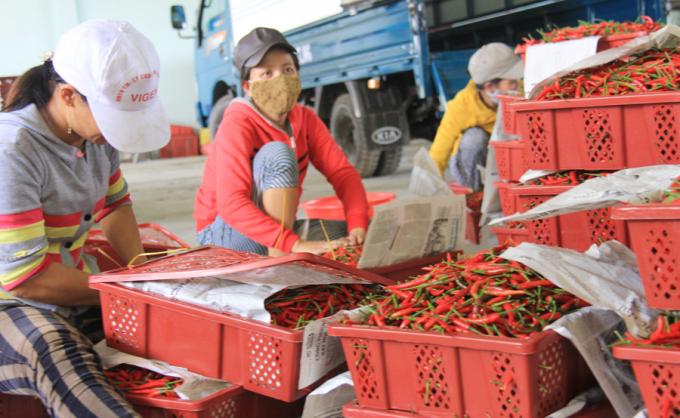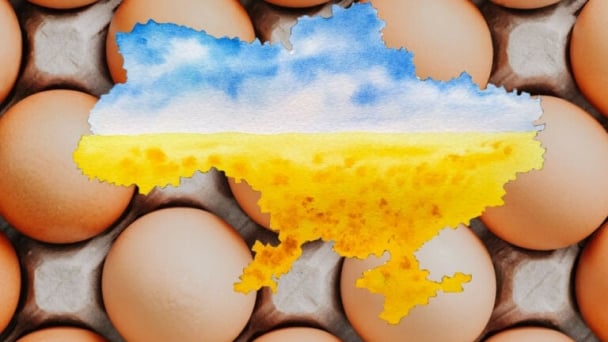May 21, 2025 | 05:39 GMT +7
May 21, 2025 | 05:39 GMT +7
Hotline: 0913.378.918
May 21, 2025 | 05:39 GMT +7
Hotline: 0913.378.918

China has just allowed 5 Vietnamese enterprises to export fresh chili officially.
On March 4, the Vietnam Trade Office in Beijing announced that the General Administration of Customs of China allowed Vietnam to re-export fresh chilies.
It is the result of the negotiation process starting from developing research methods and directly conducting experiments to determine treatment parameters of the Plant Protection Department. After an online inspection of growing areas and packing facilities of fresh chilies, the Vietnamese side has reached an agreement on phytosanitary measures at the request of the General Administration of Customs.
The Plant Protection Department currently negotiates to sign a protocol to export chili peppers to the Chinese market. However, five units, including Thanh An Onion Co., Ltd., Cai Lan Import-Export and Trading Joint Stock Company, Cam Long - Dong Thap Co., Ltd., Vinh Binh Agriculture Company Limited, and Tan Dong Agriculture Company Limited, have been licensed to export chili.
Requirements for export shipments are to meet the needs in the draft protocol, and at the same time to meet the criteria for phytosanitary treatment with Methyl Bromide and cold treatment. Specifically: Treating Methyl Bromide with a dose of 32g/m3 in 2 hours or 18g/m3 in 5 hours; Cold treatment after treatment of Methyl Bromide at 0.56-2.77°C for 4 days or 3.33-8.33°C for 11 days.
Previously, in October 2021, the General Department of Customs of China had in writing agreed with the technical measures proposed by the Plant Protection Department and conducted an online inspection with Vietnamese packing facilities, proceeding with the process to the official export of fresh chili.
China will have guidelines to recognize more packaging facilities in Vietnam in the coming time. The Plant Protection Department commits to closely coordinate with localities to guide processing and packaging establishments wishing to export chili peppers to China and submit a list of enterprises to the General Administration of Customs of China for inspection and approval.
Three notes of the Plant Protection Department in granting phytosanitary certificates to enterprises wishing to export chili peppers to China are: Goods from the growing area have been granted a code by the Department of Plant Protection and the packing facility have been approved by China; Confirming the phytosanitary treatment process information on the sterilization certificate issued by the service providers eligible to practice phytosanitary treatment; Write an additional notice on the Phytosanitary Certificate with the content agreed with the General Department of Customs of China.
From 2020, the two major markets that consume Vietnamese chili, China and Malaysia, have stopped importing chili peppers due to the problem of pesticide residues. In May 2021, these two markets agreed to reopen for Vietnamese chili peppers, accompanied by some requirements on growing area codes, using only drugs on the list of permitted pesticides, and complying with the storage time so that pesticide residues do not exceed the regulations of the import market.
To ensure the trade of agricultural products between Vietnam and other countries in general, and fresh chili in particular, the Department of Plant Protection wishes to coordinate with the Departments of Agriculture and Rural Development of provinces, cities, quarantine units, and related organizations.
Translated by Ha Phuc

(VAN) Oliyar, a prominent Ukrainian oil and fat manufacturer, has revealed plans to build a farm for 2.3 million laying hens in the Lviv region. The additional production quantities promise to change the competitive landscape of the egg market of the Eastern Europe region.

(VAN) On May 15, Ministry of Agriculture and Environment of Vietnam hosted the 'Connecting Vietnam - Germany agricultural, forestry and fishery trade' seminar in Berlin, Germany.

(VAN) In the face of counterfeit and imitation products, Khanh Hoa Salanganes Nest Company hopes for the prompt completion of the legal framework, strict enforcement against violations, and protection of the bird’s nest brand.

(VAN) Japan's efforts to lower the price of rice through the release of its stockpile may finally be making some progress, albeit at a snail's pace.

(VAN) U.S. tariffs are not only a 'shock', but also an opportunity for Vietnamese businesses to renew their mindset toward comprehensive development.

(VAN) As Bac Giang lychee enters the harvest season, Minister Do Duc Duy expects that the fruit will contribute greatly to agricultural exports due to standardized production and deep processing.

(VAN) Consumers have shown a preference for free-range eggs, but those farming systems are more vulnerable to biosecurity risks like bird flu.